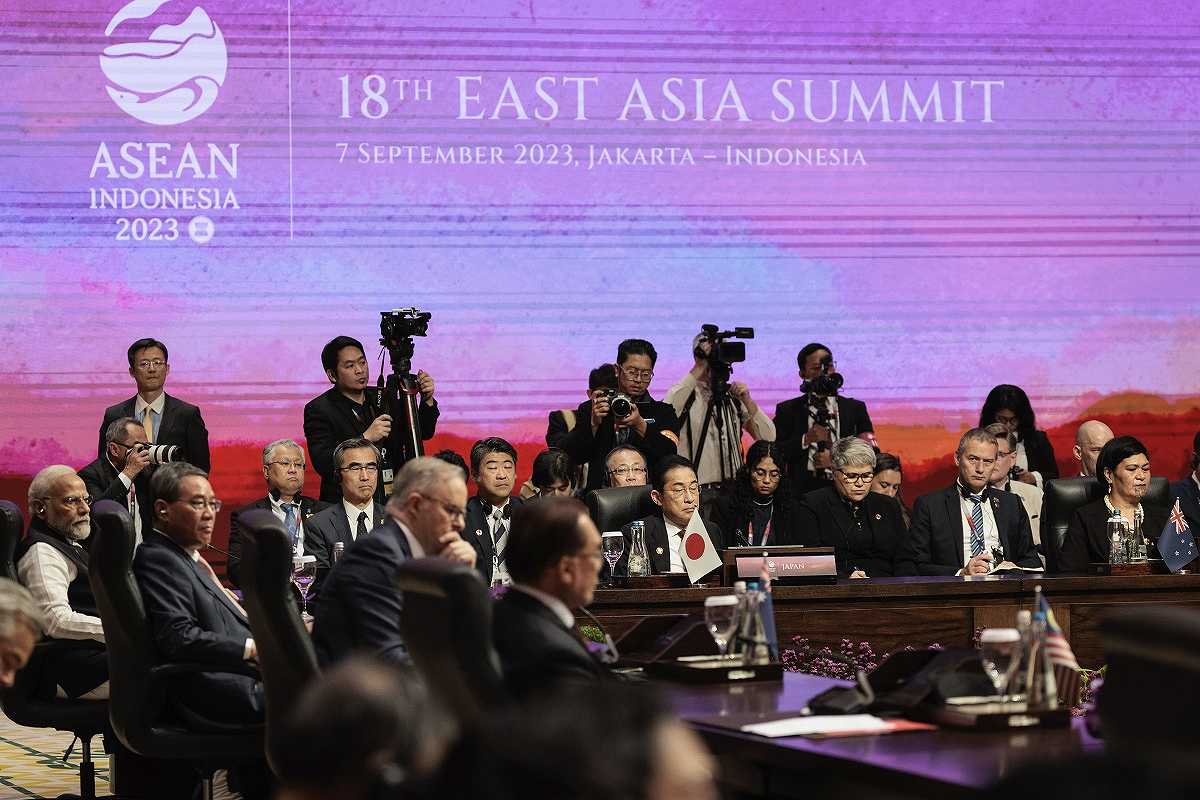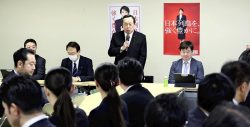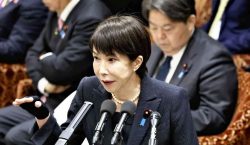Barbs Traded at East Asia Summit over South China Sea, Russia’s Invasion of Ukraine

Leaders and delegates attend the East Asia Summit in Jakarta on Thursday.
1:00 JST, September 9, 2023
JAKARTA — Leaders and high-level officials traded barbs about such issues as the South China Sea and Russia’s invasion of Ukraine in Jakarta on Thursday at the 18-nation East Asia Summit, which involved Japan, the United States, China, Russia and other countries.
Prime Minister Fumio Kishida, U.S. Vice President Kamala Harris, Chinese Premier Li Qiang and Russian Foreign Minister Sergei Lavrov were among attendees at the talks held on the sidelines of the Association of Southeast Asian Nations Summit, which ended on the same day.
At the closed-door meeting, Kishida expressed opposition to “attempts to unilaterally change the status quo by force or economic coercion,” with China’s increasing maritime expansion in the South China Sea and other areas in mind. The prime minister also strongly opposed what he referred to as continuous and escalating activities that infringe on Japan’s sovereignty in the East China Sea.
In response, Li said Beijing hopes that countries outside the region will respect discussions by countries in the region, as well as efforts to protect peace and stability in the South China Sea, eying the United States and other countries.
A majority of the member states strongly condemned Russia’s aggression against Ukraine, according to the chairman’s post-summit document, which stated that “the war in Ukraine has further aggravated the ongoing food security crisis around the world.”
Regarding the ocean release of treated water from Tokyo Electric Power Company Holdings, Inc.’s Fukushima No. 1 nuclear power plant, Kishida criticized “some countries” for having taken “the extraordinary step of suspending all imports of Japanese marine products,” but stopped short of naming China.
Harris supported Japan’s handling of the water release, saying that Washington welcomes Tokyo’s transparency and engagement with the scientific community and regional stakeholders.
Meanwhile, Li described the impact of marine pollution as being serious and expressed the need to protect the marine ecological environment with a responsible attitude toward history and humanity, but he avoided direct reference to Japan, according to China’s Foreign Ministry.
Top Articles in Politics
-

Japan PM Takaichi’s Cabinet Resigns en Masse
-

Sanae Takaichi Elected Prime Minister of Japan; Keeps All Cabinet Appointees from Previous Term
-

Japan’s Govt to Submit Road Map for Growth Strategy in March, PM Takaichi to Announce in Upcoming Policy Speech
-

LDP Wins Landslide Victory, Secures Single-party Majority; Ruling Coalition with JIP Poised to Secure Over 300 seats (UPDATE 1)
-

LDP Wins Historic Landslide Victory
JN ACCESS RANKING
-

Producer Behind Pop Group XG Arrested for Cocaine Possession
-

Japan PM Takaichi’s Cabinet Resigns en Masse
-

Man Infected with Measles Reportedly Dined at Restaurant in Tokyo Station
-

Israeli Ambassador to Japan Speaks about Japan’s Role in the Reconstruction of Gaza
-

Videos Plagiarized, Reposted with False Subtitles Claiming ‘Ryukyu Belongs to China’; Anti-China False Information Also Posted in Japan



























